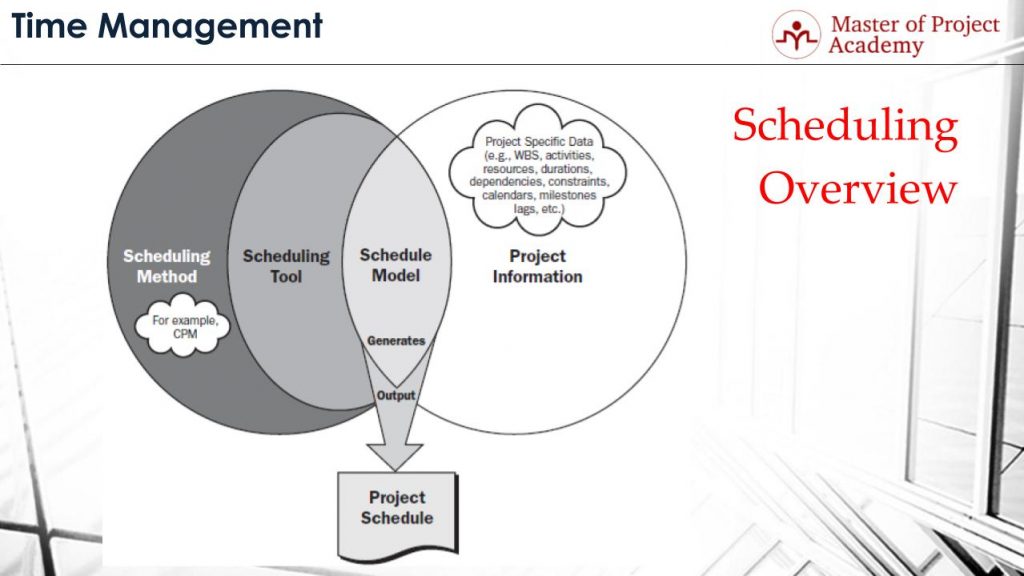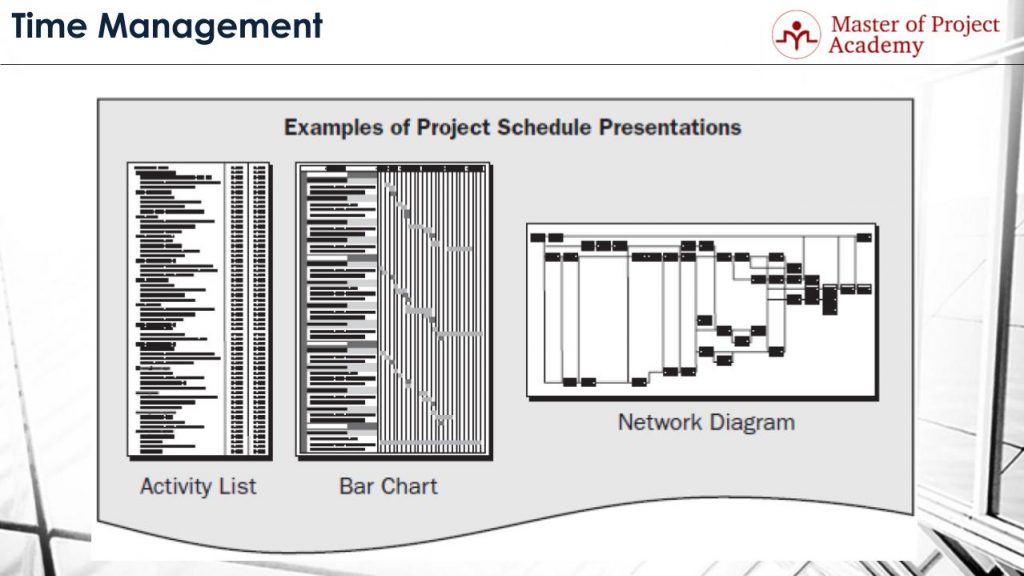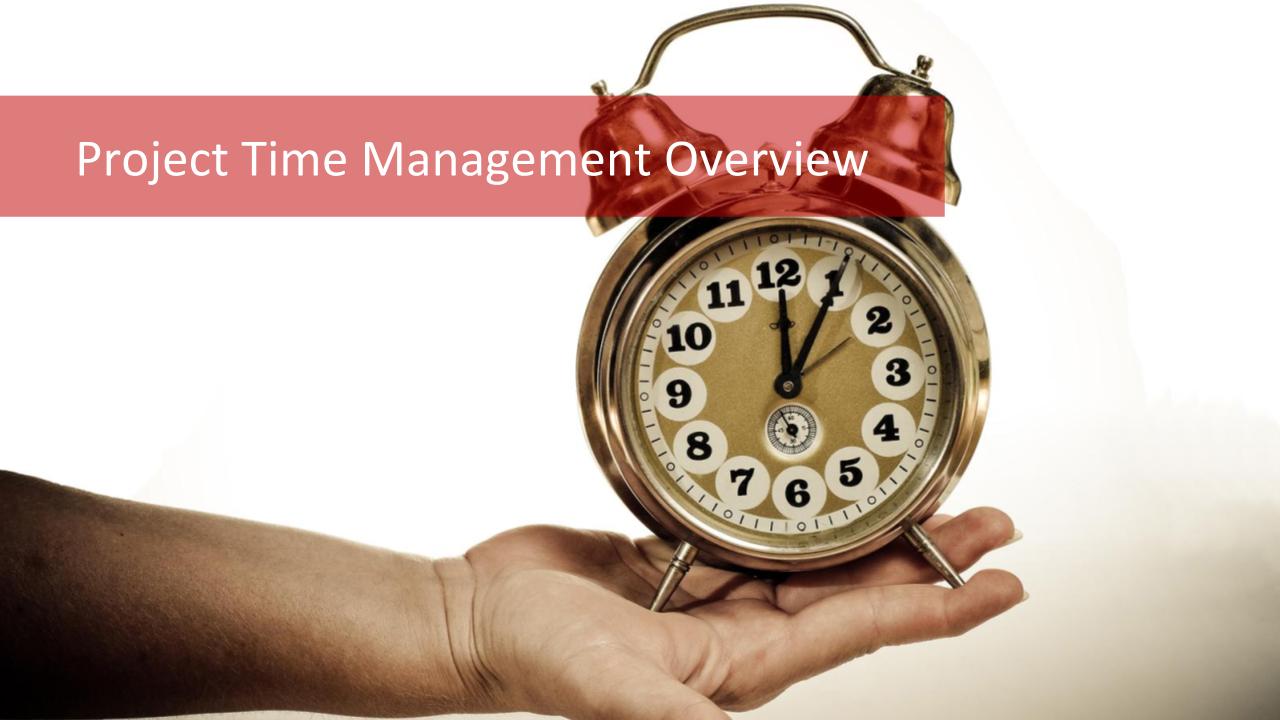If you are thinking about making an application to PMP certificate, you are probably aware of Project Time Management is an important knowledge area. As the name suggests and as it’s defined in PMI certification training, it includes processes required to manage the completion of the project on time.
Attend our 100% Online & Self-Paced One-Hour Free PMP Training.
If you like, you can assess your knowledge about these 7 processes of Project Time Management with sample online PMP exams.
What is the objective of Project Time Management?
In a project, there are many stakeholders, several project team members and also several activities that need to be performed in order to reach the project goals and objectives. It ensures the coordination, sequence and timely completion of project activities to complete the project on time.
What is the output of Project Time Management?
Project Schedule is the major output. The Project Schedule shows the start and end dates of each activity, interrelationship of activities, and overall project start and end dates respectively.

This figure summarizes the scheduling overview. As you see in the right circle, there are lots of project information like WBS, activities, resources, durations, constraints, calendars, milestones, lags, etc. These bulk data provide detailed information on activity level but it needs to be processed to reach a complete project schedule. And to do this, a scheduling method is used. The most popular scheduling method is Critical Path Method which is abbreviated as CPM. CPM method shows the shortest duration to complete all project activities.
In order to use CPM, generally a scheduling tool is used and these are usually computer programs. Most common scheduling tools in the project management world are Microsoft Project and Primavera. These tools help you to enter all project activities one by one, define interrelationship of activities, assign project resources, define calendars etc. and generates the overall project schedule.
How to present the Project Schedule?
Once the project schedule is completed, there are several alternative ways to present. Here, you see 3 common project schedule presentation methods.

Activity list shows a short description of each activity, start and end dates, and assigned resource respectively.
The bar chart shows a short description of each activity and relationships of activities with bars next to each activity.
Network diagram shows each activity as a box and duration of the activity is placed in the box. The interrelationship of activities is shown with arrows.
The 7 Processes of Project Time Management
This knowledge area has 7 processes. Most of the project time management takes place during planning, therefore 6 processes of the knowledge area belong to project planning process group and only one process belongs to Project Monitoring and control process group.

Processes of Project Time Management Knowledge area are:
- Plan Schedule Management: Organizing the time planning of the activities of a project.
- Define Activities: It helps to define the activities that need to be done to perform the project.
- Sequence Activities: The interrelationship of activities is determined.
- Estimate Activity Resources: The activity resource estimations are planned.
- Estimate Activity Durations: The activity resources present their estimations for the activities they are assigned to.
- Develop Schedule: The information collected during earlier processes are gathered and the overall project schedule is created.
- Control Schedule: It controls the project schedule against baselines and takes corrective actions and preventive actions to keep the project on track.
Project Time Management is mostly about the relationship of the activities, defining the start and end dates of the activities, creating the project schedule and guaranteeing to end all of the project activities on time.
Review by: Leo Jones



3 thoughts on “Project Time Management: How to Complete The Project On Time?”
Comments are closed.